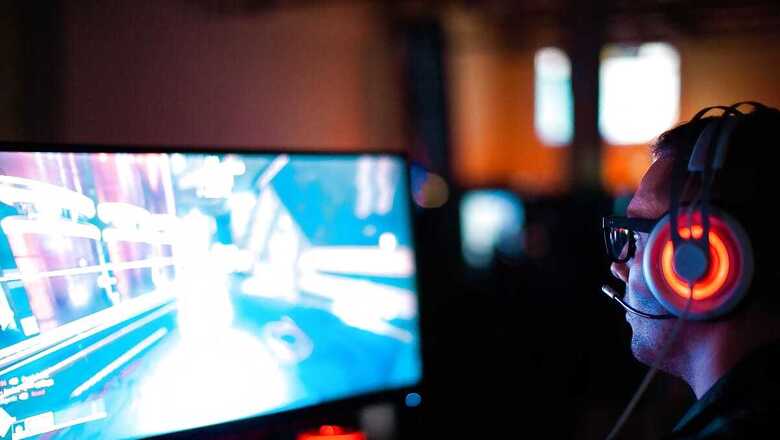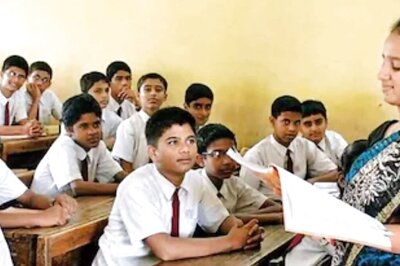
views
The attention of a nation’s young generation reflects the intentions of that generation. If a generation’s attention is being manipulated, how will it affect the future of a nation? These are not hypothetical questions anymore. An entire generation’s attention can be captured and manipulated through dopamine addiction. These are questions that India’s policymakers should be asking themselves. These are questions that the GST Council should be asking itself while taxing online gaming.
The intention of the youth defines the destiny of a country. Does India want its youths’ attention to be captured by the dopamine addiction of online platforms? How many productive hours do students have and how are they spending these days? Are they spending their time playing sports and improving their physical self which reduces their stress levels or are they spending it on online games? The irony is that these online games are basically using artificial intelligence to customise the user experience in a manner that they spend more and more of their attention on the game. I have pointed out earlier how this leads to higher anxiety, depression and overall, not a loss of productivity, but a loss of a generation.
Unfortunately, instead of addressing the crucial element that these online games are sucking the attention of a generation, policymakers have given up control to online gaming lobbying. Nowhere in the world has addiction been treated so lightly and casually as it has been treated in the online gaming regulations issued on April 6. But there is still a way to save the young generation from addiction. The simplest way to curb the proliferation of addictive apps is to charge them the highest GST slab. Second, a GST surcharge should be based on the amount of time that users spend on the platform. A 20-30 percent surcharge should be levied if 5 percent of users spend more than 30 minutes a day on the platform, or spend more than two hours per week. This would force the platform to reduce the addiction algorithms they currently deploy to manipulate users’ minds in such ways that they do not want to stop playing. This would also ensure that users don’t stay on an app for more than the allotted time for a day and week; they would automatically get logged out after exceeding the time limit.
The online gaming lobby has created an artificial distinction between games of skill and chance and taxing or treating them differently. This is akin to the substance abuse industry asserting that, since heroin is less addictive than fentanyl, heroin should be taxed less. Policymakers should understand that the objective of these gaming platforms is to keep users hooked on their games for as long as possible. The longer their attention is captured, the more money users will spend on buying game paraphernalia to change or improve performance. Purchases inside online games run into billions of dollars and by some estimates, exceed total entertainment spend on Hollywood tickets. This basic revenue model of online games cannot be achieved without addicting users to such a level that they’re willing to pay real money for virtual items within online games.
When a person becomes dependent on a game, it means that he/she cannot live without the dopamine kick that the game provides. The user is now spending not just time but earned money on the game. This is how a generation loses productive minds — instead of spending their time and intention on productive assets, they choose to play online games. While the real world faces multiple meta crises, a dopamine-soaked generation is lost inside this online gaming world.
Policymakers did not rein in social media while it was being built; now they’re giving up regulatory control to self-regulating organisations made up of gaming companies. It can’t get much worse than this; nor can it be understood why policymakers would believe that an industry built on addiction will regulate itself or that very addiction. Should drug makers be allowed to self-regulate the sale and purchase of opioids? Should cocaine cartels be allowed to self-regulate? Should the Chitta sellers in Punjab be given recognition as an industry and police protection and can they self-regulate themselves?
In his radio broadcast — “Mann Ki Baat” — Prime Minister Narendra Modi mentioned the addiction to Chinese games such as PUBG. As the MKB celebrates 100 episodes, it is time that the PM talks to parents about these online games and the addiction that they are causing. It is time for the impact of this manipulation of minds to be explained in simple terms to the masses. Because, besides taxation, policymakers need to address the real issue of addiction intrinsic to these platforms. The attention of the nation can even be weaponised if they are snared into a game that is controlled, managed or owned by an enemy state. It’s a reasonable expectation that policymakers must monitor these organisations to ensure that their ownership is clear and clean. This task cannot be left to the self-regulating organisations that derive their operational expenses from membership fees given by online gaming organisations. The only way to control this addiction of the youth is taxation which is linked to the time spent by users on this platform.
K Yatish Rajawat is a public policy researcher and works at the Gurgaon-based think and do tank Centre for Innovation in Public Policy (CIPP). Views expressed are personal.
Read all the Latest Opinions here




















Comments
0 comment